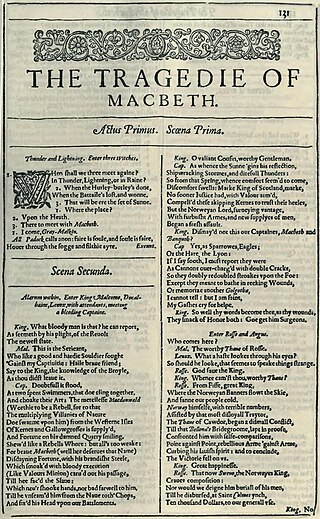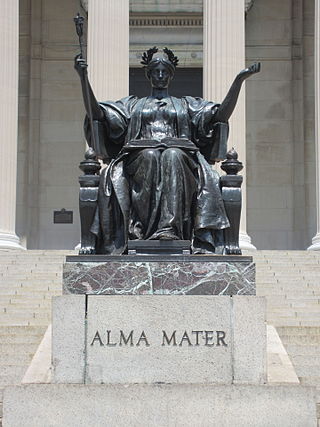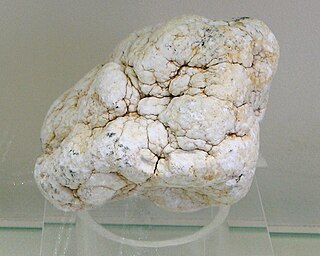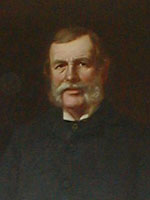

Websterite is ultramafic igneous rock that consists of roughly equal proportions of orthopyroxene and clinopyroxene. It is a type of pyroxenite.
Websterite is named after the town Webster in North Carolina. [1]


Websterite is ultramafic igneous rock that consists of roughly equal proportions of orthopyroxene and clinopyroxene. It is a type of pyroxenite.
Websterite is named after the town Webster in North Carolina. [1]

Cambridge is a city in Middlesex County, Massachusetts, in the United States. It is a major suburb in the Greater Boston metropolitan area, located directly across the Charles River from Boston. The city's population as of the 2020 U.S. census was 118,403, making it the largest city in the county, the fourth most populous city in the state, behind Boston, Worcester, and Springfield, and ninth most populous city in New England. It was named in honor of the University of Cambridge in England, which was an important center of the Puritan theology that was embraced by the town's founders.

Sir Isaac Newton was an English polymath active as a mathematician, physicist, astronomer, alchemist, theologian, and author who was described in his time as a natural philosopher. He was a key figure in the Scientific Revolution and the Enlightenment that followed. His pioneering book Philosophiæ Naturalis Principia Mathematica, first published in 1687, consolidated many previous results and established classical mechanics. Newton also made seminal contributions to optics, and shares credit with German mathematician Gottfried Wilhelm Leibniz for developing infinitesimal calculus. He is considered one of the greatest and most influential scientists in history.

Immanuel Kant was a German philosopher and one of the central Enlightenment thinkers. Born in Königsberg, Kant's comprehensive and systematic works in epistemology, metaphysics, ethics, and aesthetics have made him one of the most influential and controversial figures in modern Western philosophy.

Jane Austen was an English novelist known primarily for her six novels, which implicitly interpret, critique, and comment upon the British landed gentry at the end of the 18th century. Austen's plots often explore the dependence of women on marriage for the pursuit of favourable social standing and economic security. Her works are an implicit critique of the novels of sensibility of the second half of the 18th century and are part of the transition to 19th-century literary realism. Her deft use of social commentary, realism and biting irony have earned her acclaim among critics and scholars.

Macbeth is a tragedy by William Shakespeare. It is thought to have been first performed in 1606. It dramatises the damaging physical and psychological effects of political ambition on those who seek power. Of all the plays that Shakespeare wrote during the reign of James I, Macbeth most clearly reflects his relationship with King James, patron of Shakespeare's acting company. It was first published in the Folio of 1623, possibly from a prompt book, and is Shakespeare's shortest tragedy.

Trinity College is a constituent college of the University of Cambridge. Founded in 1546 by King Henry VIII, Trinity is one of the largest Cambridge colleges, with the largest financial endowment of any college at either Cambridge or Oxford. Trinity is the largest Oxbridge college measured by the number of undergraduates (730), and has about 300 graduate students and 180 fellows.

William Shakespeare was an English playwright, poet and actor. He is widely regarded as the greatest writer in the English language and the world's pre-eminent dramatist. He is often called England's national poet and the "Bard of Avon". His extant works, including collaborations, consist of some 39 plays, 154 sonnets, three long narrative poems, and a few other verses, some of uncertain authorship. His plays have been translated into every major living language and are performed more often than those of any other playwright. Shakespeare remains arguably the most influential writer in the English language, and his works continue to be studied and reinterpreted.

Cambridge is a university city and the county town in Cambridgeshire, England. It is located on the River Cam approximately 55 miles (89 km) north of London. As of the 2021 United Kingdom census, the population of Cambridge was 145,700. Cambridge became an important trading centre during the Roman and Viking ages, and there is archaeological evidence of settlement in the area as early as the Bronze Age. The first town charters were granted in the 12th century, although modern city status was not officially conferred until 1951.

Cambridge University Press is the university press of the University of Cambridge. Granted letters patent by King Henry VIII in 1534, it is the oldest university press in the world. It is also the King's Printer.

Alma mater is an allegorical Latin phrase used to proclaim a school that a person has attended or, more usually, from which one has graduated.

Cambridge United Football Club is a professional association football club based in the city of Cambridge, England. They compete in EFL League One, the third tier of the English football league system. The club is based at the Abbey Stadium on Newmarket Road, approximately 2 miles (3 km) east of Cambridge city centre. The stadium has a capacity of 7,937, made up of terracing and seated areas.

Catherine, Princess of Wales is a member of the British royal family. She is married to William, Prince of Wales, heir apparent to the British throne.
Thomas Webster was a Scottish geologist.

Aluminite is a hydrous aluminium sulfate mineral with formula: Al2SO4(OH)4·7H2O. It is an earthy white to gray-white monoclinic mineral which almost never exhibits crystal form. It forms botryoidal to mammillary clay-like masses. It has a very soft Mohs hardness of 1–2 and a specific gravity of 1.66–1.82.

Henry Joseph Gardner was the 23rd Governor of Massachusetts, serving from 1855 to 1858. Gardner, a Know Nothing, was elected governor as part of the sweeping victory of Know Nothing candidates in the Massachusetts elections of 1854.
Type locality, also called type area, is the locality where a particular rock type, stratigraphic unit or mineral species is first identified. If the stratigraphic unit in a locality is layered, it is called a stratotype, whereas the standard of reference for unlayered rocks is the type locality.

English is a West Germanic language in the Indo-European language family. Originating in early medieval England, today English is both the most spoken language in the world and the third most spoken native language, after Mandarin Chinese and Spanish. English is the most widely learned second language and is either the official language or one of the official languages in 59 sovereign states. There are more people who have learned English as a second language than there are native speakers. As of 2005, it was estimated that there were over two billion speakers of English.

Szentbékkálla is a village in Káli-basin, Balaton-Highlands, Veszprém county, Hungary. In the Middle Ages the village had a monastery of St. Benedict, which explains its name, because earlier it was Szentbenedekkál. Kál was a prince and landlord here in the ages of the Árpád's peoples arrival to Hungary.
The Lac des Îles igneous complex of northwestern Ontario, Canada is a layered gabbroic intrusion which is the host for the largest palladium orebody in Canada. The orebody is currently being mined as a combined open pit and underground operation by North American Palladium.

The University of Cambridge is a public collegiate research university in Cambridge, England. Founded in 1209, the University of Cambridge is the world's third-oldest university in continuous operation. The university's founding followed the arrival of scholars who left the University of Oxford for Cambridge after a dispute with local townspeople. The two ancient English universities, although sometimes described as rivals, share many common features and are often jointly referred to as Oxbridge. In 1231, 22 years after its founding, the university was recognised with a royal charter granted by King Henry III.